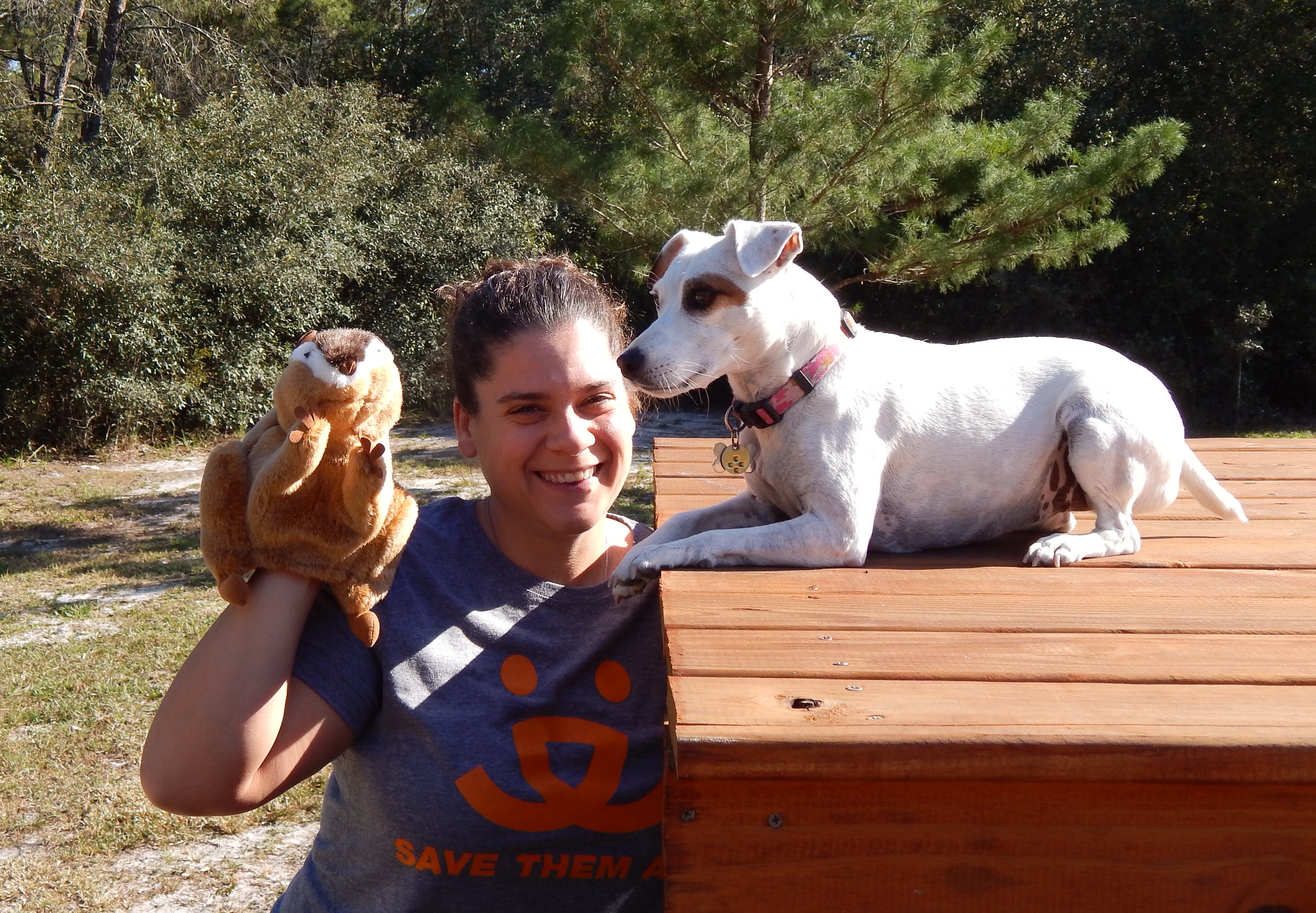“Dog Friendly, Scientifically Proven” Training
My Jack Russell has had a hip issue since she was very young. When her hips bother her, it causes her to lash out like the dog from the “Mask” at those she loves the most. We manage the pain with medication, but because of her young age we give her the bare minimum to keep the pain at bay, but not overtax the system and build up immunity. I use holistic alternatives to help as well. I wish I could say in time it will get better, but I can’t predict that.
My job is to love her and take care of her the best I know how. She struggles with some behavior problems because when this issue first started we didn’t know that was the problem. Her aggression was treated behaviorally when in reality it was a medical condition. To make matters worse, at the time I didn’t know there were alternatives to traditional based training which is based on letting the dog know what she is doing wrong in a rather threatening (and to be honest, sometimes painful) way.
So, I set out to find a better way…
I read every book I could get my hands on, researched every trainer who wrote a book I liked, conducted “tests” with a variety of training tactics reading my dog’s body language that I also learned about. I went to back to school to work towards a master’s degree in applied animal behavior and counseling. I took seminars. I attended workshops. I took courses from professional dog trainers who were using the much friendlier, scientific based training I was learning about in my master’s courses. I became a Pat Miller Certified Trainer and am currently enrolled in the Karen Pryor Academy. I attended several conferences including the Clicker Expo, the Association of Professional Dog Trainers, and the Pet Professional Guild Summit. And that’s when I decided to use…
Dog Friendly, Scientifically Proven Training Methods
What the heck does that mean? “Dog Friendly” means that when you look at your learning dog, his body language and facial expressions indicate he’s “happy”. “Scientifically Proven” means the training techniques I use have been proven to WORK by researchers (I’ll spare you the long boring peer reviewed articles and statistics that only statisticians can understand). In training, your dog will experience all kinds of new things he may not have experienced before. I use management techniques, such as baby gates, to prevent unwanted behavior while your dog learns what is appropriate behavior. I use new sounds, words, yummy treats, toys, or life rewards (such as going outside) to say to the dog “yes” that is exactly what I wanted you to do. And yes, there will be times when we might use ways (such as closing a door) to indicate to the dog, “you just lost an opportunity for a yummy treat or toy or to go outside, but if you do this you can still have it your way.” And I take the time to change his mind about the aliens that live in our home, i.e., the washing machine, the vacuum cleaner, etc.
What do you as the “pet parent” have to do?
Don’t worry about your training, you won’t be learning how to be alpha, we can leave that term to the fraternities and sororities. Your dog won’t be forced to roll over, but he might learn “rollover” as a fun party trick. You won’t have to hit, choke, or yell at your dog, but you might need to finger shoot him if you want him to “play dead”. You won’t have to walk him 100 miles a day to burn off his energy, but you will need to implement a creative, time saving, energy draining, designed for your life plan (unless you can figure out a way to harvest and sell his energy for profit… in which case you can quit your day job thus having the time to walk him 100 miles!)
There’s more to me and my training than just this little short article about how I came to be a dog trainer and behavior counselor, but we will save that for another time. AND as for my Jack Russell… she thanks you for reading this. The more people that know of my dark past, the more in place to help in her scheme to take over the world. (She has no idea, I have more TRICKS up my sleeve to prevent the takeover.)
NOTE: If you suspect there is an underlying medical issue causing your pet to misbehave, see a veterinarian as soon as possible.

